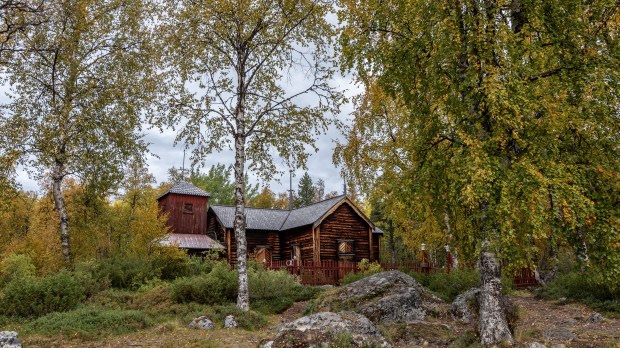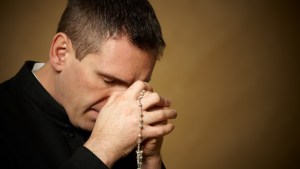Every year, I make a week-long spiritual retreat in rural Missouri. I’ve been on all sorts of retreats in my life – Cursillo, ACTS, diocesan clergy retreats, days of recollection, Lifeteen youth camp, guided Ignatian exercises, parish retreats to the lake, and many more. I’ve found each and every one helpful in its own way with great speakers, time for spiritual development, and plenty of time to bond with the other people. If your parish offers a retreat, I highly recommend considering it.
For me, though, there is no spiritual retreat that can replace a solitary, silent retreat into the wilderness or a rural monastery. I’ve found that if I’m going to retreat from the busyness of the world, I really need to get into the middle of nowhere. I need the quiet space for reflection and the opportunity to decompress – no schedule, no workshops, no expectations.
The vast majority of our lives are lived under a cloud of expectation. Each day, we have basic goals that need to be accomplished — places to be, errands to be completed, showing up for work on time and being a productive employee, making dinner for the children, checking in on a sick relative, and so on. In short, we need to show results.
Within a proper perspective, there’s nothing wrong with this. These goals we set for ourselves are motivating for self-improvement and creativity. The responsibilities we take up, particularly for others, are acts of service and works of mercy.
The point remains, however, that we cannot give what we don’t have. If we are always pouring ourselves out into activity, if we’re always trying to live up to expectations, eventually we are left empty.
Taking a break from activity and hectic schedules
When I feel this way, I begin to plan my annual retreat. It’s my time to recover my self. I disappear alone to a rural property tucked into a valley near the Missouri River. There, I sit by a little waterfall that bubbles over with excitement each spring as passing thunderstorms feed its tributaries. I watch the tiny fish play in the foam in the pool at the bottom. Woodpeckers nearby get to work on ancient oaks and paper birches. Frogs sing an opera from the shore of the pond. They scatter for dear life when I walk past to examine fresh deer tracks in the mud. I lie on the sun-warmed dock, my back pressed to the weathered wood, and stare at the clouds as they push downriver. I write a mediocre poem or two. I journal. I feel joy at being allowed to exist in this wild and wonderful world. At times, I even feel melancholy but allow myself to sit with the emotion. I don’t run away from it.
My only rule is that there is no schedule and no planned activity other then praying my daily prayers. Funny enough, this commitment to doing nothing is by far the most challenging part of the retreat. I’m so addicted to daily activities that my identity has somehow become wrapped up in what I do. I think of myself as a priest, a parent, a writer, but what I really want to be is simply a man. I desire to connect with that simple but profound reality that I have been shaped into a human person and had life breathed into me by God. I am loved. This alone time on retreat becomes the wellspring of personal identity, unraveling the miracle of existence – that we are not what we accomplish.
Without my annual retreat, this basic fact quickly becomes obscured. I think, in part, the difficulty of making the retreat each year is rediscovering my own identity. The act of remembering is a struggle. Like Jacob wrestling with an angel, it can leave you limping.
Good leaders spend time on retreat
In a recent essay over at First Things, Paul Kingsnorth writes about a solitary retreat he took into The Burren, a craggy mess of limestone hills in County Clare, Ireland. He hiked to a cave where a hermit named St. Colman spent seven years in isolation. He camped in the cave and watched a storm roll across the landscape. He contemplated the lives of the various hermit saints who, back in the 6th century, crawled into various caves and hiding holes in that same area, along with saints who stood praying a night watch while ankle-deep in the North Sea, saints who disappeared into the forest, saints who became so still and quiet that birds nested in the palm of their hands.
These are the same saints, Kingsnorth notes, who were begged by the surrounding faithful to come out of the forest and lead the Church as bishops. The faithful instinctively understood that these were precisely the sort of men to lead them, men who had spent time on retreat, who had grown intimately close to nature, the steady beat of their own heart, and the God who brought it all into existence. These men were half-wild, they belonged in the wilderness, and yet they were precisely the sort of people that the world desperately needed.
I was so impressed with Kingsnorth’s essay that I promptly preached a homily to my parishioners asking the question, “Is it time to disappear into the wilderness?” His thoughts are a great meditation for Lent, which is a time period defined by the concept of taking a pilgrimage through the wilderness. That’s where God is found, in the wilderness. That’s where we combat our temptations, where we learn to see the world through new eyes, and most of all, rediscover ourselves and our identity as creatures who have been wonderfully made.



